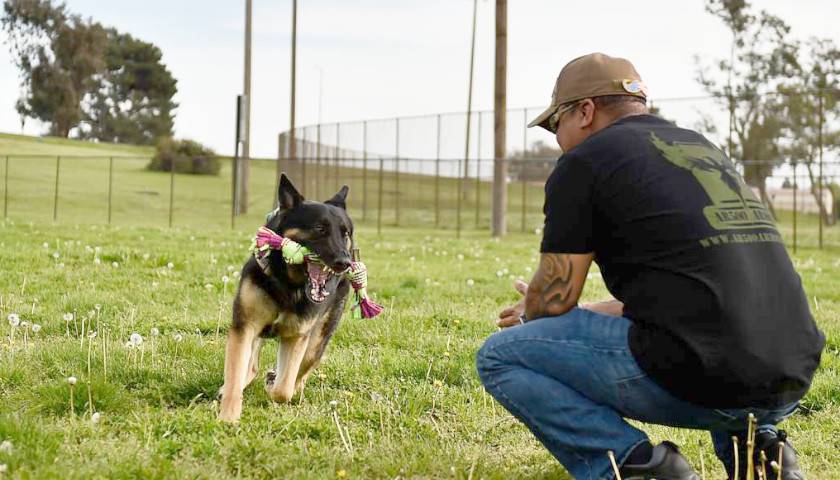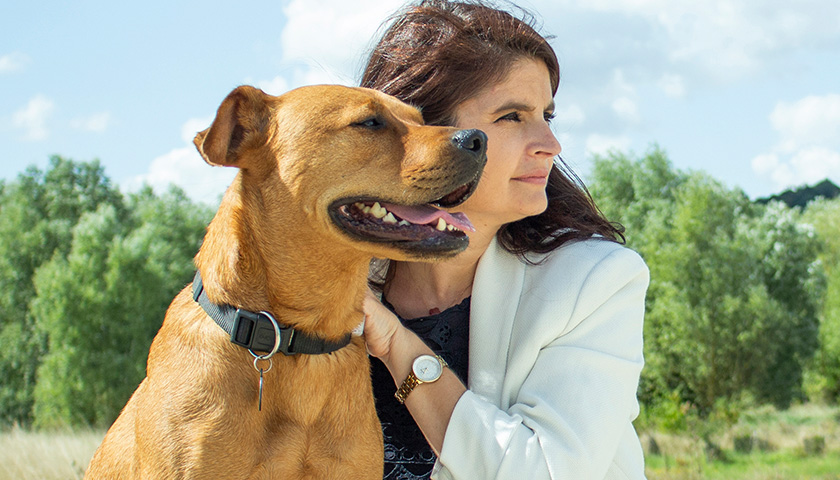As Americans observe Veterans Day this year, it’s important to be mindful of the challenges facing former military members. The wounds of war—both seen and unseen—should be top of mind. Beyond simply recognizing the struggles, we should also recommit ourselves to doing something about it. And for returning military heroes facing the invisible scars of battle—notably Post-Traumatic Stress and Traumatic Brain Injury—a valuable medicine is often four legs and a wagging tail.
Read MoreTag: dogs
Commentary: Climate Alarmists Have Set Their Sights on People’s Dogs
Even man’s best friend is not safe from the climate alarmism.
Not if you believe a recent CNN column opining that dogs, cats and other domestic pets are causing irreparable harm to the climate. President Harry Truman famously said that if you want a friend in Washington, you should get a dog. The eco-left feels differently.
Read MoreDog Names Are Racist: Scholars
Academics recently applauded a Social Psychology Quarterly study purporting to show a disparity in the time dogs were adopted based on racial associations with the animals’ names.
“White” names, according to the study, resulted in shorter adoption times compared to “Black” names.
Read MoreCommentary: Four Moral Panics Not Backed by Science
We humans are social animals, with society serving as the glue that binds us together. Through our ideals, ethics, and actions, we all have a hand in forming the collective views of society. “Work hard”, “take care of your family”, “don’t commit crime”, are a few basic tenets. But sometimes, often when faced with something novel, society can panic. Rather than try to understand this new trend or thing, frenzied members might view it as a threat and seek to banish it. Sociologists call these moments “moral panics”. More often than not, they’re irrational, with little to no support from scientific evidence. Here are four moral panics not backed by science:
1. Dungeons & Dragons. In the 1980s, spurred by a few attention-grabbing incidents, the media, politicians, and many prominent members of society glommed on to the idea that the tabletop roleplaying game Dungeons & Dragons (D&D) was driving players to psychosis, suicide, and even murder. The fantasy game has players cooperatively imagine themselves as a party of heroes (or villains) in a magical world filled with demons, beasts, and spells.
Read MoreCommentary: The Intelligence of Canines
Albert Einstein. Wolfgang Amadeus Mozart. Marie Curie. Gaia. The first person came up with the general theory of relativity. The second is regarded as perhaps the greatest classical composer of all time. The third is the only person to win the Nobel Prize in two scientific fields. The fourth isn’t a person at all; it’s a dog.
All might be considered geniuses.
Some individuals are supremely gifted, with abilities that the vast majority of people cannot hope to replicate even after years of dedicated practice – the adolescents who are chess grandmasters, the musicians with perfect pitch, the professional athletes who make their colleagues look like amateurs. Scientists have been studying these people for decades, hoping to uncover genetic, environmental, or social underpinnings for their talents. Researchers have yet to find satisfactory answers.
Which brings us to dogs.
Read More




